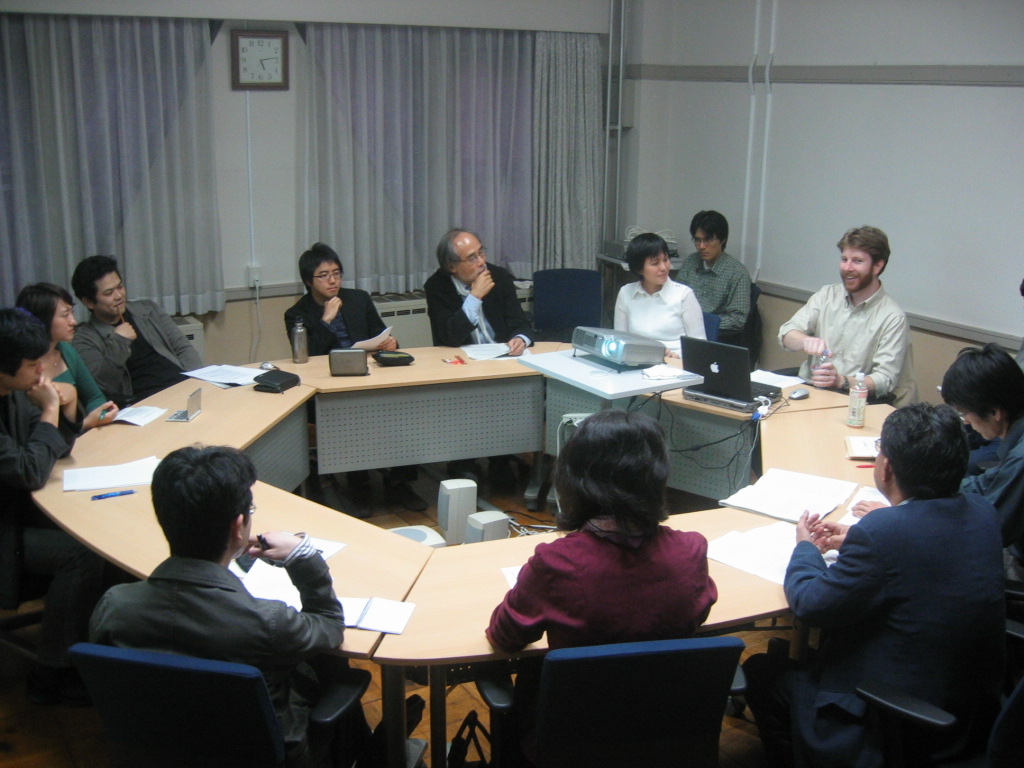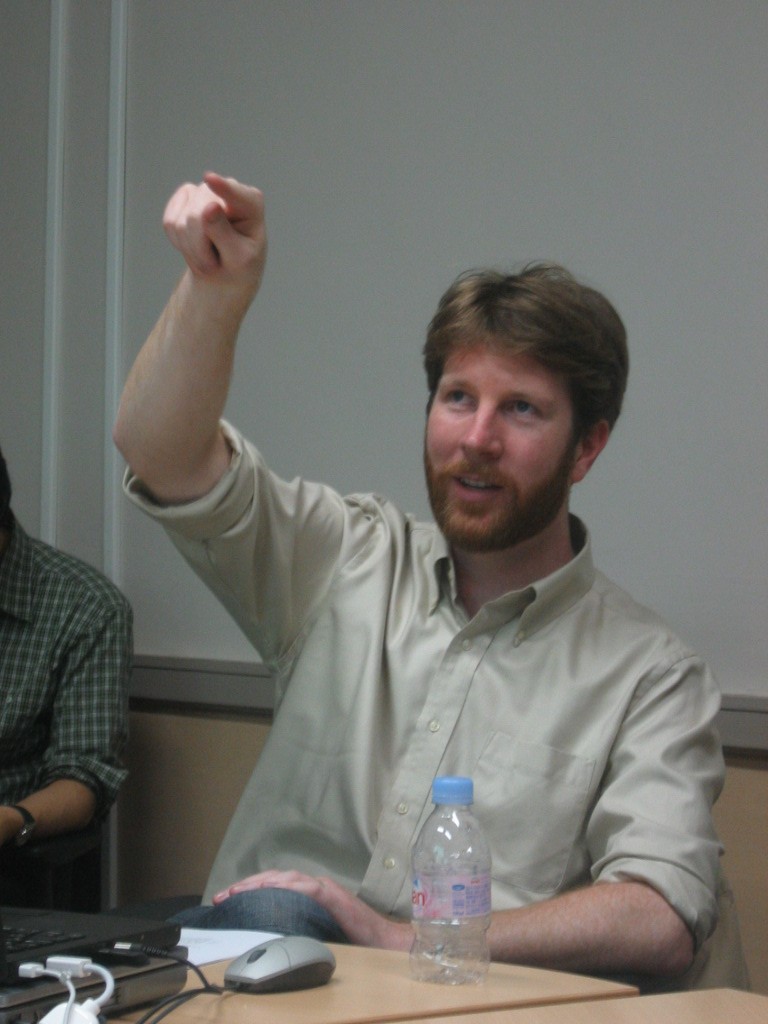Social Perception and the Theory of Consciousness: A Personal Report
Yesterday we had a talk by Dr. John O'Dea. John is a post-doc at the University of Tokyo, and he specializes in the philosophy of mind. A caveat is in order here. I am no specialist in the philosophy of mind. Thus my report might contain some serious misunderstanding.
Anyhow, the title of John's talk was "Social Perception and the Theory of Consciousness." The topic of his talk was the problem of other minds. The problem is this. Without relying on our self-awareness of consciousness, how can we know that others have minds? When we theorize a general theory of consciousness, we have to rely on a sort of similarity between others and us. But how about other animals, creatures, or objects? If some animal, creature, or object totally differs from us, it seems to be difficult for us to say that the animal, creature, or object has a mind. John explained how analytic philosophers of mind such as Ned Block and continental phenomenologists such as Edmund Husserl, Jean-Paul Sartre, and Maurice Merleau-Ponty thought about the problem. As John admitted in his talk, his explanation of continental phenomenologists is mostly based on Dan Zahavi's interpretation of them. As some keen readers might notice, here is a problem of whether Zahavi interprets continental phenomenologists correctly (and whether John understands Zahavi correctly). Thus I shall not reiterate John's explanation here. Explaining his point should suffice. It is that phenomenologists' claims seem to be consistent with empirical research better than analytic philosophers of mind would admit. Then John argued that "other minds are part of the content of perception." According to neuroscientific and psychological study, infants respond to others' gaze automatically, not inferentially.This means that we are hard-wired to see that creatures, in particular, human beings have minds, and that such a perception is "automatic, non-conceptual, and inescapable." I think that this is the gist of John's talk, although he mentioned other interesting issues at the end of his talk.
After his talk, we had a lively discussion. Comments and questions include: Is there any independent criterion to judge whether someone has a mind?, How does John's theory explain the consciousness or autism of animals?, etc. We had John's talk to develop the UTCP members' abilities to speak and communicate with others in English. In this regard, the talk was successful. I hope that this project flourishes. (Kei Yoshida)
Comment from John O'Dea
I'd like to thank the members of UTCP for their hospitality. The discussion of my talk was conducted in a spirited and extremely friendly atmosphere, and the feedback I received was enormously helpful to my research. Because part of the point of the seminar series is to allow UTCP members to practice philosophical discussion in English, a relaxed environment is promoted, which is all the more ideal for the free flow of ideas. I'm very grateful for the chance to have presented a paper to the group.








